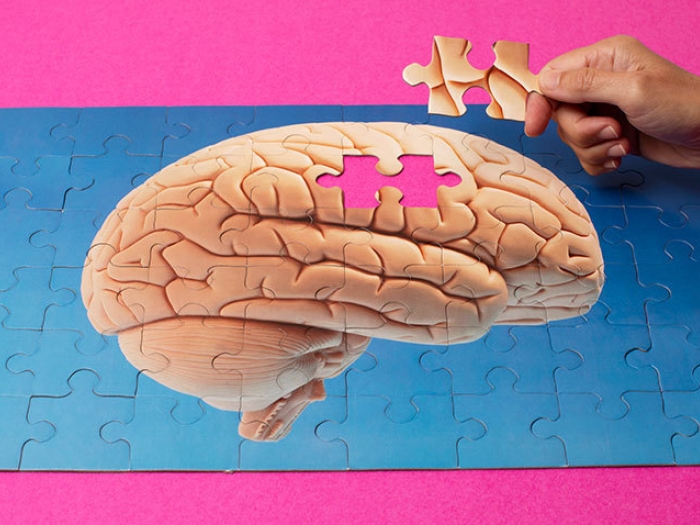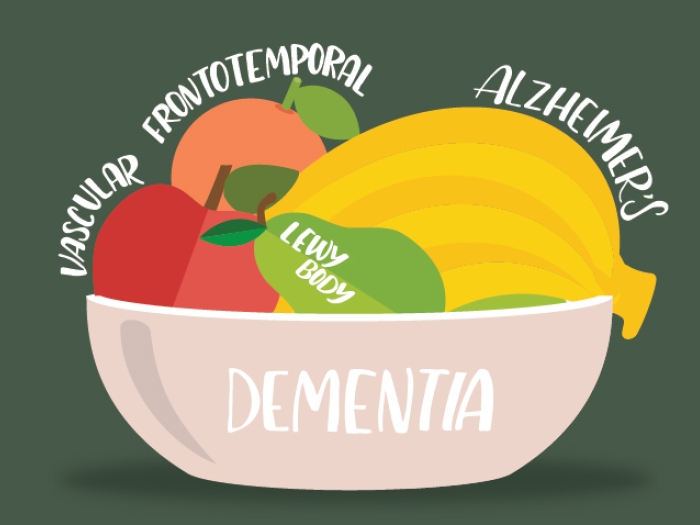People with dementia can be affected by changes in the brain that lead to unfamiliar or frightening behavior. The symptoms that caregivers should know.
7:00 AM
Author |

The mind often plays tricks on people with dementia as brain cells degenerate.
SEE ALSO: Alzheimer's: Not Just a Disease for Older Adults
Their brains often distort their senses to make them think they are seeing, hearing, feeling, smelling or experiencing something that isn't really there.
Such internal "miswiring" can manifest in different ways.
With illusions, an object is physically there, but dementia patients view it as something else. They might see a person in the corner instead of a coat tree, for example.
No object is present during hallucinations, but people's brains tell them they are seeing children in the living room, hearing voices or feeling that there are strings in their mouths, to name a few common experiences.
Delusions, meanwhile, are fixed false beliefs or ideas that cannot be reasoned with. Capgras syndrome, in which the person with dementia thinks someone close to him or her is an imposter, is one such type of delusion. Another common delusion is blaming someone for stealing a misplaced item.
When trouble might occur
Visual hallucinations are one of the hallmark symptoms in Lewy body dementia (LBD) and often occur early in the illness. In other dementias, delusions are more common than hallucinations, which occur well into the disease cycle, if at all, and are less often visual.
Fluctuating good days and bad days are another hallmark of LBD. On a good day, thinking is clear, and these illusions, hallucinations and delusions may not occur; on a bad day, they may be intense.
As LBD progresses, these types of symptoms may first intensify, then later burn out.
In dementia, symptoms always change, so what a person experiences this month may not be happening the next month, though such distressing symptoms seem to last an eternity for the caregiver.
Advice for caregivers
"Happy" or benign hallucinations and delusions do not need medical treatment but rather the caregiver's understanding and acceptance that this is a symptom of the illness.
SEE ALSO: Capgras Syndrome: Are You a Pretender or the 'Real Mary'?
Understand that these experiences are a part of LBD — and they happen in most dementias. Many caregivers nonetheless are ashamed of the reactions in their loved ones.
Don't be: Changes in the brain are creating this distorted reality.
Health professionals who are experienced in dementia care can suggest physical changes — removing the coat tree or other offending object, covering mirrors, improving lighting or using mouth-moistening solutions — that could ease symptoms.
Helen C. Kales, M.D., a geriatric psychiatrist at the University of Michigan, recommends the proactive DICE approach (describe, investigate, create, evaluate) before trying medication.
Other caregivers, likewise, may suggest creative strategies to help cope.
What to watch for
Seek help if your loved one is distressed by illusions, hallucinations or delusions — or is at risk of hurting himself or others (with behaviors such as running away from hallucinations, leaving the house or fighting the episodes).
Describe the symptoms to your loved one's physician at each visit. Such reporting will be helpful in tracking how often the delusion occurs. You don't have to name it a hallucination or delusion; let the physician determine that.
Tell the physician if there is a marked change in the frequency or intensity of your loved one's hallucinations. This may be the only clue that he or she is facing a medical problem such as a bladder infection, pneumonia, pain or constipation.
If these approaches don't help enough and the person is frightened and distressed by these distortions to reality, medication may improve the quality of life by reducing the intensity and frequency of hallucinations and delusions.

Explore a variety of healthcare news & stories by visiting the Health Lab home page for more articles.

Department of Communication at Michigan Medicine
Want top health & research news weekly? Sign up for Health Lab’s newsletters today!





